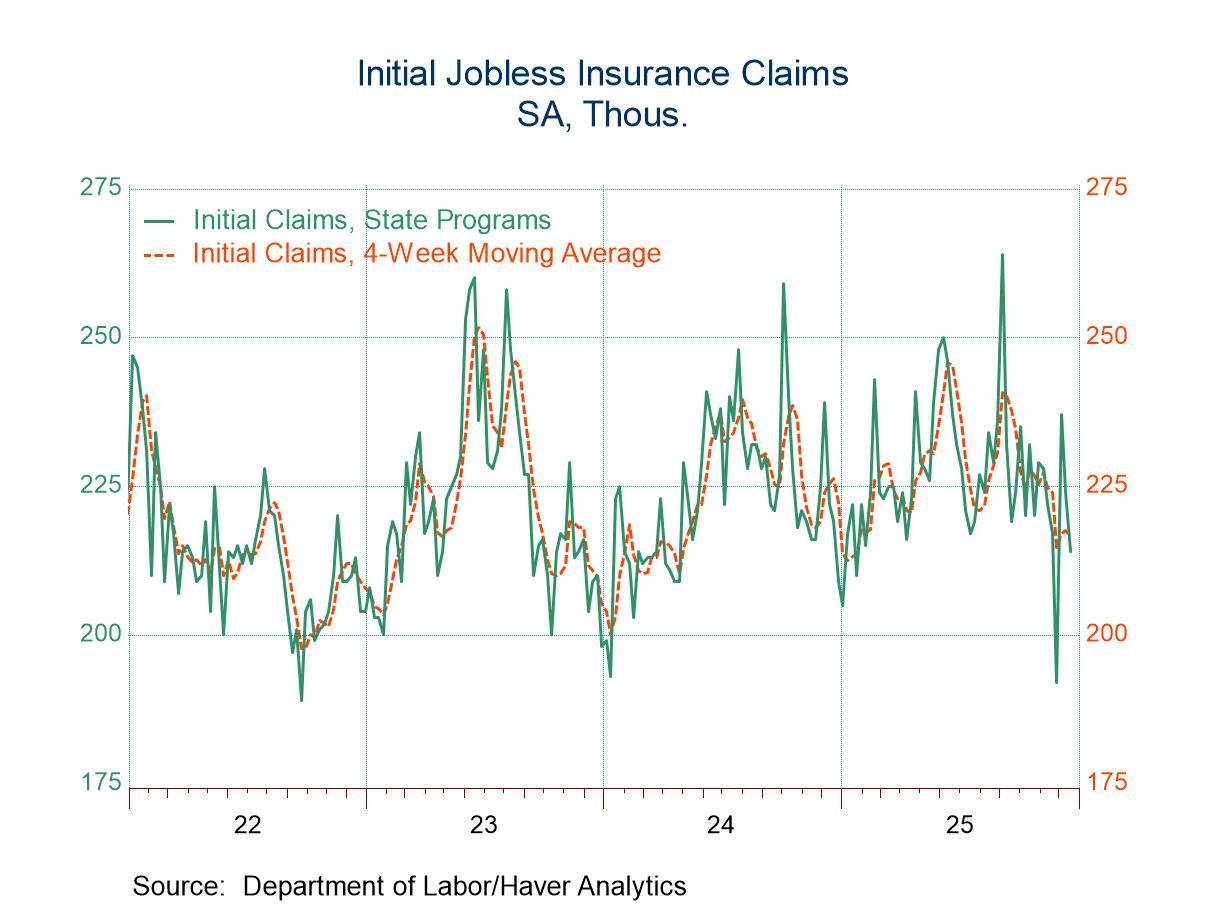Germany’s IFO Confidence Measure Weakens in February

The German IFO diffusion survey weakened broadly in February. The index survey is over 5 industries plus provides an overall all-sector reading and applies itself to three venues: climate, current conditions, and expectations. We assess the readings on these 3 broad environments across the five industries on data back to 1991 and on that basis only one reading out of 18 has a standing above its median. That reading is under current conditions and the sector is construction. The construction standing; its 53.7th percentile standing places it barely above its historic median; the median on ranked data occurs at the 50th percentile mark.
Turning to the three broad areas that are surveyed, the all-sector standing for climate in February is at its 5.7 percentile. The All-sector standing for current conditions is at its 11.7th percentile and the all-sector standing for expectations is at its 9.1 percentile. In all three of these environments the readings are exceptionally weak. The climate is weak, the current conditions are weak, and they've been weak for a prolonged period. Despite that extended weakness, there continues to be weakness in expectations. This extended period of weakness has not been used successfully to repair the view of the future.
Far right-hand columns, in addition to the long-dated percentile standing column, present a column determining changes in these various metrics since January of 2020 just before COVID struck. None of the 18 readings is higher than it was in January 2020. The all-sector summary statistic for climate is lower by 24 points, for current conditions it's lower by 29 points and expectations are lower by 17 points. In all cases the stepdown compared to the pre COVID period is quite substantial. This means all these German metrics continue to run substantially below their performance of four year ago.
The far-right hand column of this table ranks data on a different timeline from the period just before Russia's invasion of Ukraine. The three venues show conditions are weak across the board although they are starting to see some stabilization on expectations. The all-sector climate index is at its low point right now at a ranking of 0. Current conditions have a ranking of 4%, extremely low and rarely lower. However, expectations have a ranking at the 48th percentile. This reading is close to the median - and recall that these statistics are being generated only since the invasion of Ukraine by Russia, so this is still a period in which the readings are going to be low - the assessment is that in February expectations are still hovering at the median for this period. And that's better than the other functional assessments for current conditions and climate by a long shot.
The chart gives us a means to understand this. If you look at the plot for the three functional surveys for climate, current conditions, and expectations note that at the very time of the invasion expectations fell very sharply immediately, while current condition and climate readings continued to erode somewhat slowly. Expectations fell to a low point and have hovered there persistently near that low, while current conditions and climate have proceeded to erode as time has passed.
The IFO survey does not paint much of an optimistic picture for this month period conditions continue to be quite weak and then the current conditions framework only services improved month-to-month. Expectations continue to show extremely low net negative readings across industries with only minor change. Climate weakened month-to-month I February except in three industries, those being construction, services, and wholesaling but only to a very minor extent. There is little reason for optimism in the wake of this survey.

Robert Brusca
AuthorMore in Author Profile »Robert A. Brusca is Chief Economist of Fact and Opinion Economics, a consulting firm he founded in Manhattan. He has been an economist on Wall Street for over 25 years. He has visited central banking and large institutional clients in over 30 countries in his career as an economist. Mr. Brusca was a Divisional Research Chief at the Federal Reserve Bank of NY (Chief of the International Financial markets Division), a Fed Watcher at Irving Trust and Chief Economist at Nikko Securities International. He is widely quoted and appears in various media. Mr. Brusca holds an MA and Ph.D. in economics from Michigan State University and a BA in Economics from the University of Michigan. His research pursues his strong interests in non aligned policy economics as well as international economics. FAO Economics’ research targets investors to assist them in making better investment decisions in stocks, bonds and in a variety of international assets. The company does not manage money and has no conflicts in giving economic advice.






